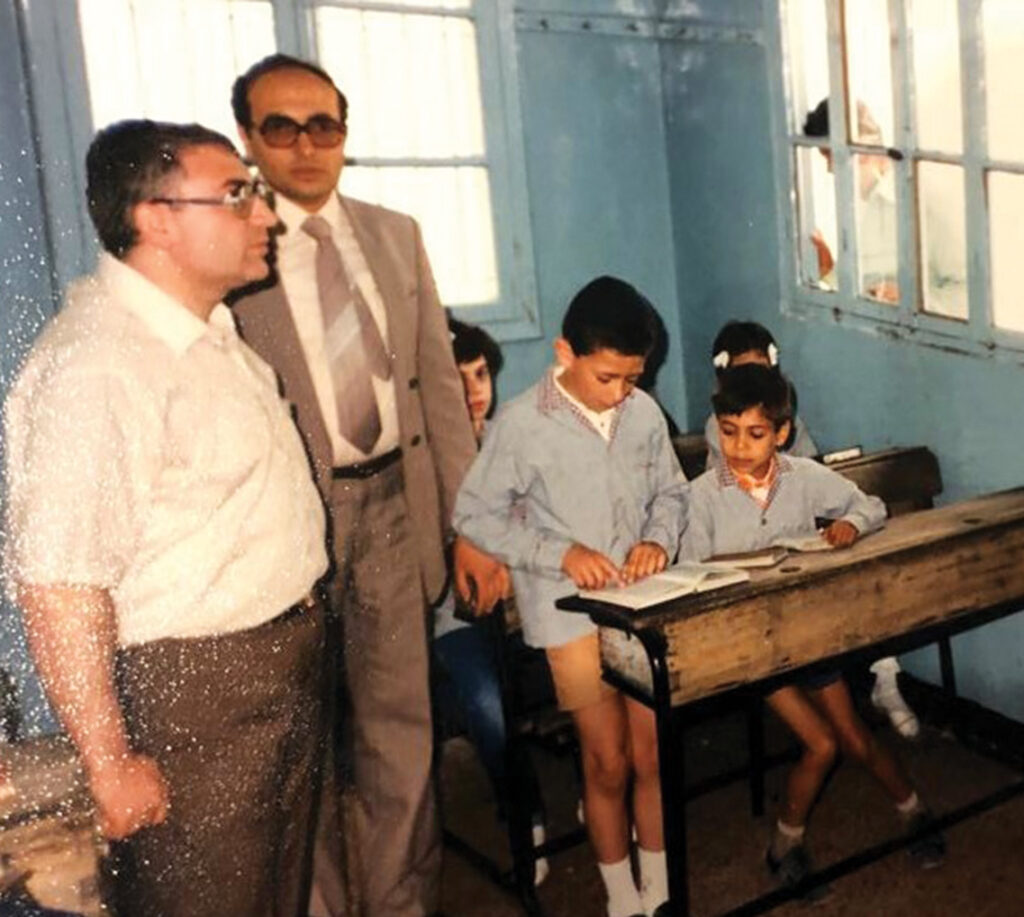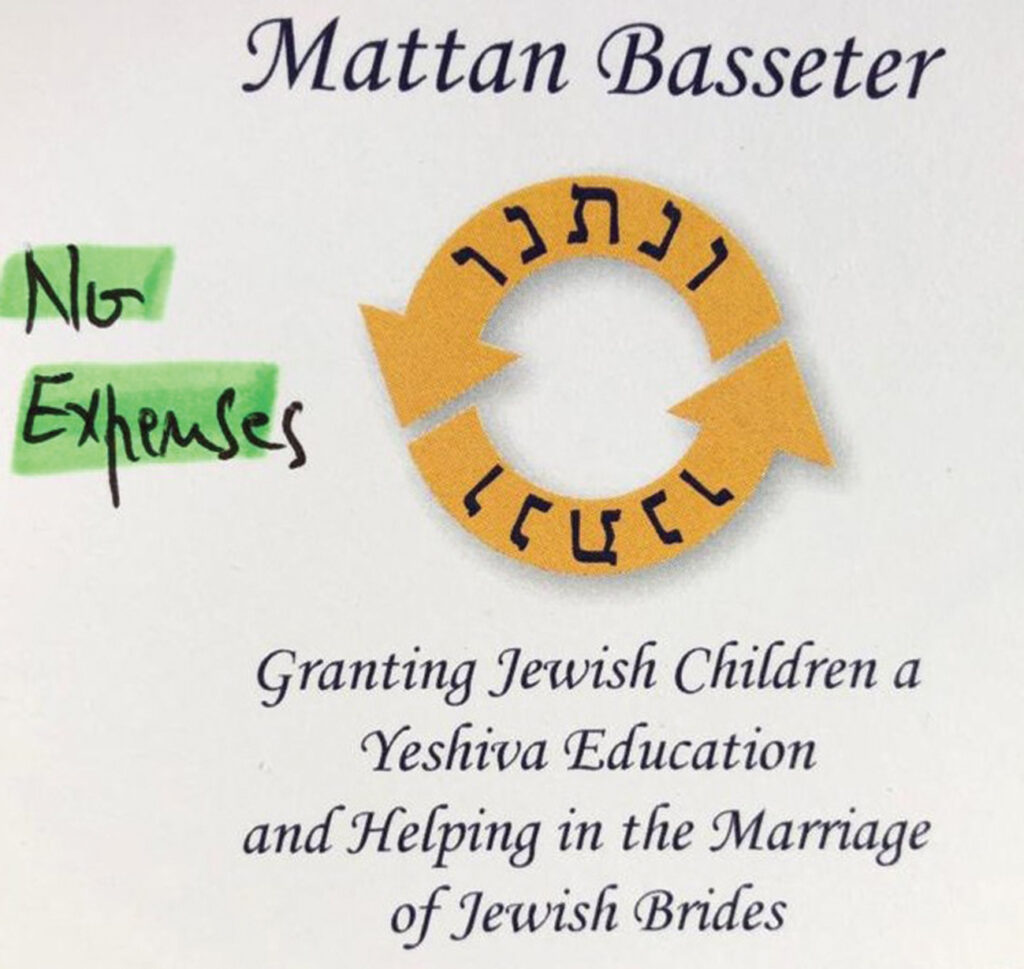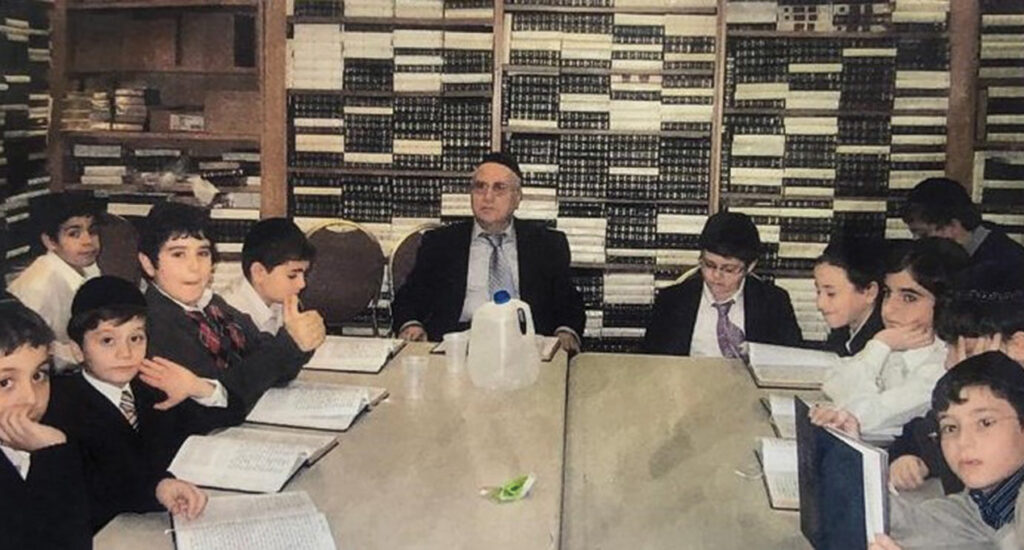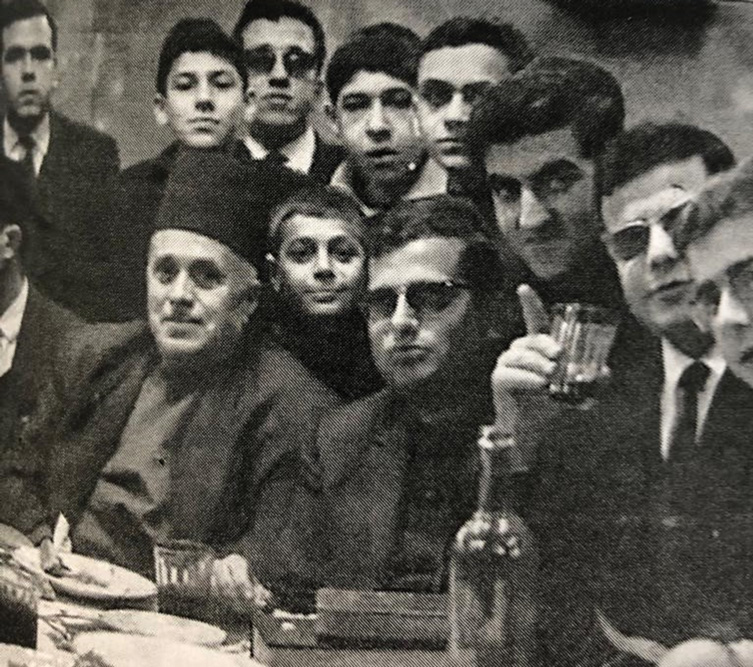
SARINA ROFFÉ
JEWISH EDUCATION HAS BEEN AT THE FOREFRONT OF RABBI ZAKI SARDAR’S LIFE SINCE HE WAS A YOUNG MAN IN ALEPPO. FOLLOWING IN THE STEPS OF HIS FATHER, ELIYAHU SARDAR A”H, AND GRANDFATHER, MORDECHAI SARDAR A”H, BOTH OF WHOM WERE SHOKHETS IN ALEPPO, RABBI SARDAR HAS COMMITTED HIS ENTIRE LIFE TO TEACHING BOYS ALL ASPECTS OF JEWISH EDUCATION.
Raised in the post 1948 years in Aleppo, Rabbi Sardar had a difficult life under the Syrian regime. With no Jewish high schools, he had to attend Catholic school.
When he was just 19, Rabbi Sardar was the gabbay (assistant) in the knees (synagogue) in Jamileh. He took meticulous care of the synagogue, managed the school and assisted the many needy families. He collected donations before holidays to give gift certificates for food for to the poor.
A student of Hakham Yomtob Yedid A”H, Rabbi Sardar learned how to be a teacher. It came naturally and the students connected with his sincerity. He taught elementary Hebrew and Talmud Torah in Aleppo. He quickly became assistant principal at the high school in Aleppo, where he also taught Arabic to high school students.
“He was my teacher when I was in sixth grade,” said Morris Bawabeh. “Rabbi Sardar does a lot of things for the community, the shul and our religion. He enjoys teaching the children and makes them superior in any subject he teaches. He brings out the best in the students. All of his classes loved him. He is patient and puts a lot of effort into teaching in a way that engages the students and keeps them interested. He is very unique among teachers.”
There are many in the community who were students of Rabbi Sardar in Aleppo. He taught Arabic reading and grammar to Rabbi Edmond Nahum and Rabbi Isaac Farhi. He also taught Hebrew prayer to girls from 1976 to 1992.
The children needed other things as well, such as food to keep them in good health. Indoor heat was rare in Aleppo and there was no heat in the synagogue or any community buildings. Rabbi Sardar, worried about his students, found a way to bring heat into the classroom, by running a line from the basement.
Married to Adele Gindi, they have five sons who married in the community. One son is a doctor, another is a lawyer and three are in business. Adele and her sons Edmond and Michael came to the United States in 1988 because there was no future in Aleppo. Rabbi Sardar and his other three sons came in 1992. The family speaks Arabic at home and in the office. Rabbi Sardar left Syria on July 7, 1992, with the 1992 airlift that brought a majority of the remaining Syrian Jews to New York.
“After I left school, I hired him to work with me in Syria,” said Mr. Bawabeh. When we came to New York, he began working with my brother. He handles Mattan Besseter and deals with all the schools. He helps a lot of people.”
“When I came to America, Aslan Bawabeh opened a business,” said Rabbi Sardar. “He called me when I came and he asked me to work for him.”
Shortly after arriving in New York, Rabbi Sardar also began teaching boys to read Torah at Congregation Shaare Zion. Today, he works full time as a volunteer with Mattan Basseter, a project of the Bawabeh family, which helps students at community yeshivot with tuition. The organization began in 1993.
“Tuition at yeshivahs is very high,” said Rabbi Sardar. “We help about 100 families a year by sending tuition to the schools. I meet with the families to see their income and expenses. Some are divorced or have health issues. Sometimes they need food, so I give them gift cards to buy food or clothing. The amount varies based on the family’s needs.”



Frida Tessone, now retired from Yeshivah of Flatbush, said “Rabbi Sardar is very good hearted. There isn’t one time when I asked him to help a family when he didn’t do it. He answers texts and emails immediately. I had a neighbor who had a lot of children and no job. He sent her money to buy food; he answered the call. If I told him a person needed help, he didn’t question it. I wish there were more people like him. What sets him aside is he listens and answers. He doesn’t push you away; he always does what he says he will do. He never reneged. A lot of parents can vouch for him.”


“Rabbi Sardar is an expert on the customs of Syria,” said Rabbi Eli Mansour. “He is the go-to guy about anything that happened in the old country. He has pure motivation to help people and preserve our traditions. When people go up to the Torah on Shabbat, he gives them a blessing and it is very flowery. He is very humble. He is always happy and passionate. Everyone loves him; I am a big admirer.”

A genealogist and historian, Sarina Roffé is the author of Branching Out from Sepharad (Sephardic Heritage Project, 2017), Sarina holds a BA in Journalism, and MA in Jewish Studies and an MBA.



